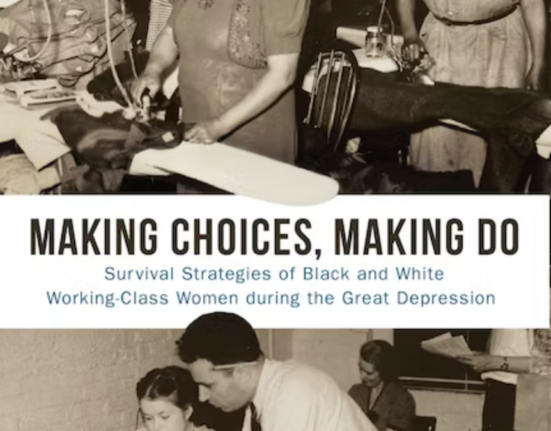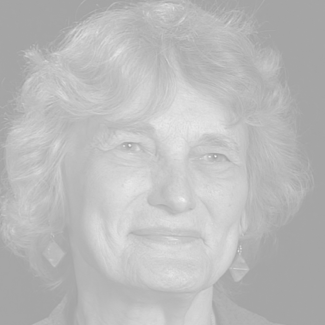The Midwest Labor and Working-Class History Graduate Colloquium met on May 26th, 2018 at the University of Iowa, where it was founded by graduate students of Professor Shelton Stromquist almost twenty years ago. Hosted by Ph.D. students Ashley H. Dorn and John Jepsen, the one-day colloquium this year included graduate panels, a keynote address by Professor Rosemary Feurer of Northern Illinois University, and a community activism panel with representatives from the Teamsters Local 238, the Center for Worker Justice in Iowa City, the graduate student union at the university, COGS, and SEIU-Faculty Forward.
The early morning panel focused on community-building and healthcare as forms of labor. Aiden Bettine’s presentation concentrated on mid-twentieth century Evanston, Illinois and the ways in which African Americans of the Great Migration confronted the challenges of obtaining quality healthcare. Joseph Jakarasi’s work draws on ethnographic fieldwork and oral history to uncover the centrality of kinship and kin-crafting in the provision of professional healthcare in post-colonial Zimbabwe. Bettine and Jakarasi’s presentations together showed not only that the provision of healthcare, remunerated or not, is vital labor, but reminded us that the circumstances under which healthcare is provided affects both patients and providers as the conditions of labor for workers become the conditions of care for patients.
The second panel brought together graduate students from across the Midwest working on projects united by their chronological placement in the Progressive Era and thematic emphases on race and gender. John Truden linked efforts by Army officers at Fort Still in the American West to simultaneously create unfree labor and erase Native American culture in ways comparable to boarding school education. Wesley Bishop examined the legacy of Coxey’s Army and the impact the march had on literature, politics, and popular thought. Jeffery Stilley joined us from sociology and highlighted the importance of the local Women’s Trade Union League in the 1918 general strike in Kansas City and the opportunities and limitations workers faced in the context of World War I.
The keynote speaker, Dr. Rosemary Feurer, has researched, published, and taught about the theme of this year’s event, Dis-Organized/De-Organized/Reorganized, throughout her academic and activist career. Dr. Feurer’s presentation about her on-going research on Mother Jones analyzed how social activists like Mother Jones identified and fought disorganization tactics in the late nineteenth century. Aided by a life-size, full color, cardboard cutout of Mother Jones, Dr. Feurer discussed not only newly-uncovered information about Mother Jones’ early life and words but treated the audience to a tour of public history efforts and monuments about Mother Jones, commenting on the process and meaning of publicly-engaged work. As we wait for the book, remember that Dr. Feurer has already written, produced, and co-directed a short documentary film titled Mother Jones: America’s Most Dangerous Woman.

The first afternoon panel dug into the bread and butter of what one might expect from MLWCH: graduate research on midwestern solidarity struggles. Janet Weaver began with an examination of the AFL’s role and culpability for a failed strike of women button workers in Muscatine, Iowa. Erica Gilbert-Levin examined the rhetoric and conversations of white steel workers in Chicago to reveal how intra-white class conflict and a sense of embattled victimization prompted these work workers to become passively involved in a public housing protest in 1953-54. Professor Emeritus Richard Hudelson spoke about researching his own hometown of Newcastle (and nearby Anderson), Indiana and argued that ethics of community solidarity were integral to a 1955 strike of Perfect Circle and remain an integral part of vision for worker justice.
Our final graduate panel took a hard look at labor intimidation and disorganization in extractive industries – specifically strip mining and oil drilling. Ryan Tate’s presentation highlighted the activism of 1970s and 1980s among workers in the coal industry, often known for its anti- and non-union work environment. John Jepsen offered analysis grounded in both professional research and personal experience to examine the prevalence of injury in the oil fields and the ways in which both workers and management respond to and suppress acknowledgement and treatment for injuries sustained on the job. Together these papers tied boom/bust cycles and anti-union tactics to the precarious employment experienced by many workers in extractive industries.
Finally, community activists and university-affiliated organizers joined us for a roundtable discussion about the state of labor in Iowa. Jesse Case from Teamster Local 238 emphasized that while the loss of Chapter 20 certainly represented a setback for the labor movement in Iowa, it also created an opportunity to envision conditions and protections for workers beyond the compromises of the previous law. Rafael Morataya from the Center for Worker Justice spoke about recognizing the various ways in which workers need information, organization, and protection – in workplaces and housing as well as with respect to civil rights and immigration-related issues. Laura Szeck from COGS spoke about the immediate threat posed by a costly recertification vote coming in the fall and noted the pressures and fears inherent in preparing a minority union for such a vote. Brooke Larson spoke on behalf of SEIU-Faculty Forward, which is currently working to organize non-tenure track faculty at Iowa, highlighting the heavy workload of contingent faculty and the increasing reliance of universities on such precariously employed workers.

We would like to extend special thanks to our commentators: Dr. James Alexander Robinson, Dr. John McKerley, Dr. Jacob Altman, Dr. Colin Gordon, and Dr. Jennifer Sherer.
We would also like to extend thanks to all of the following for making this event possible: Obermann Center for Advanced Studies, University of Iowa Labor Center, Iowa Labor History Society, Center for Human Rights, Dean’s Office of the Graduate College, Public Policy Center, Department of Sociology, Department of Gender, Women, and Sexuality Studies, Department of English, Department of American Studies, Department of History.
If you have any questions or ideas about keeping MLWCH strong please contact John McKerley at john-mckerley@uiowa.edu.




